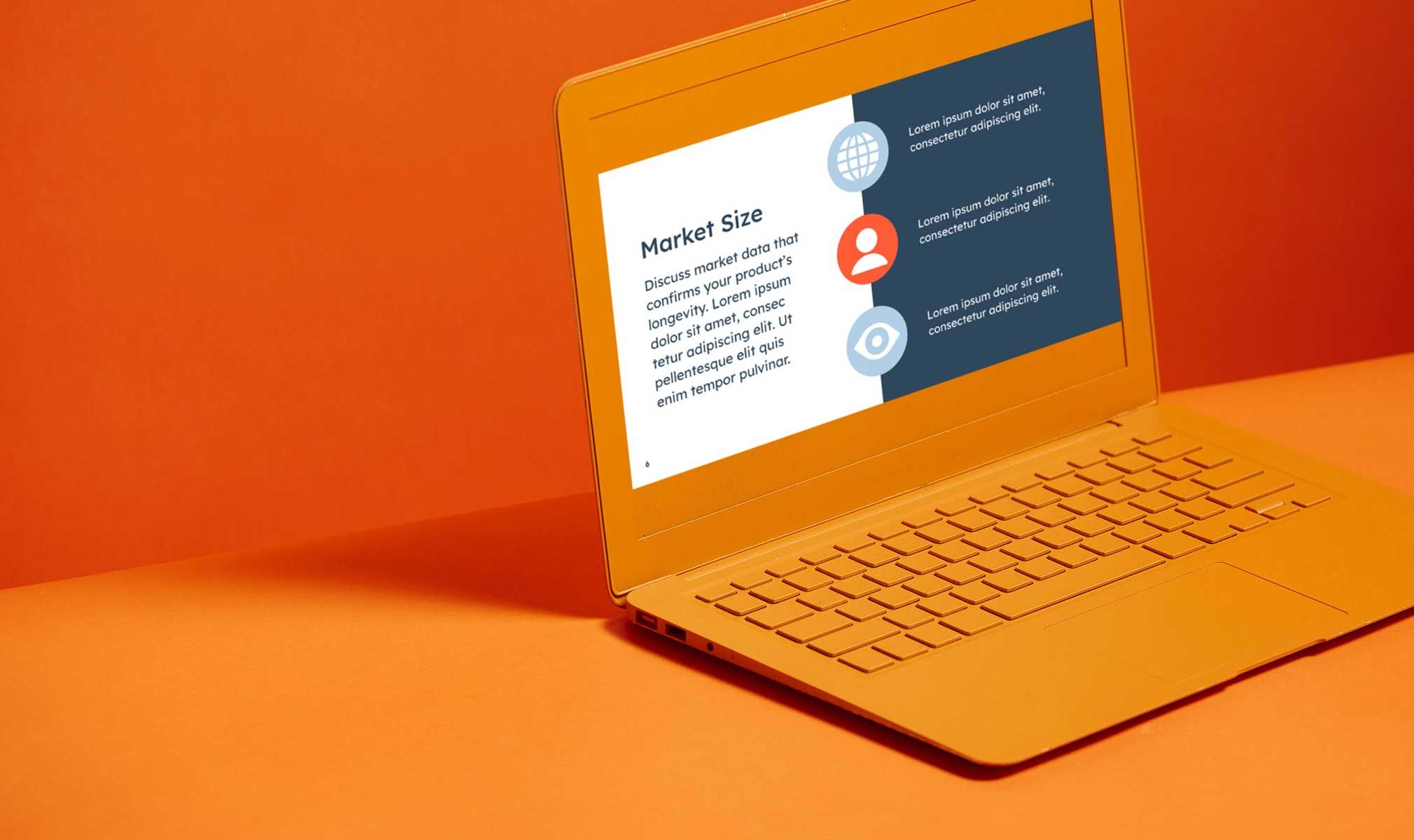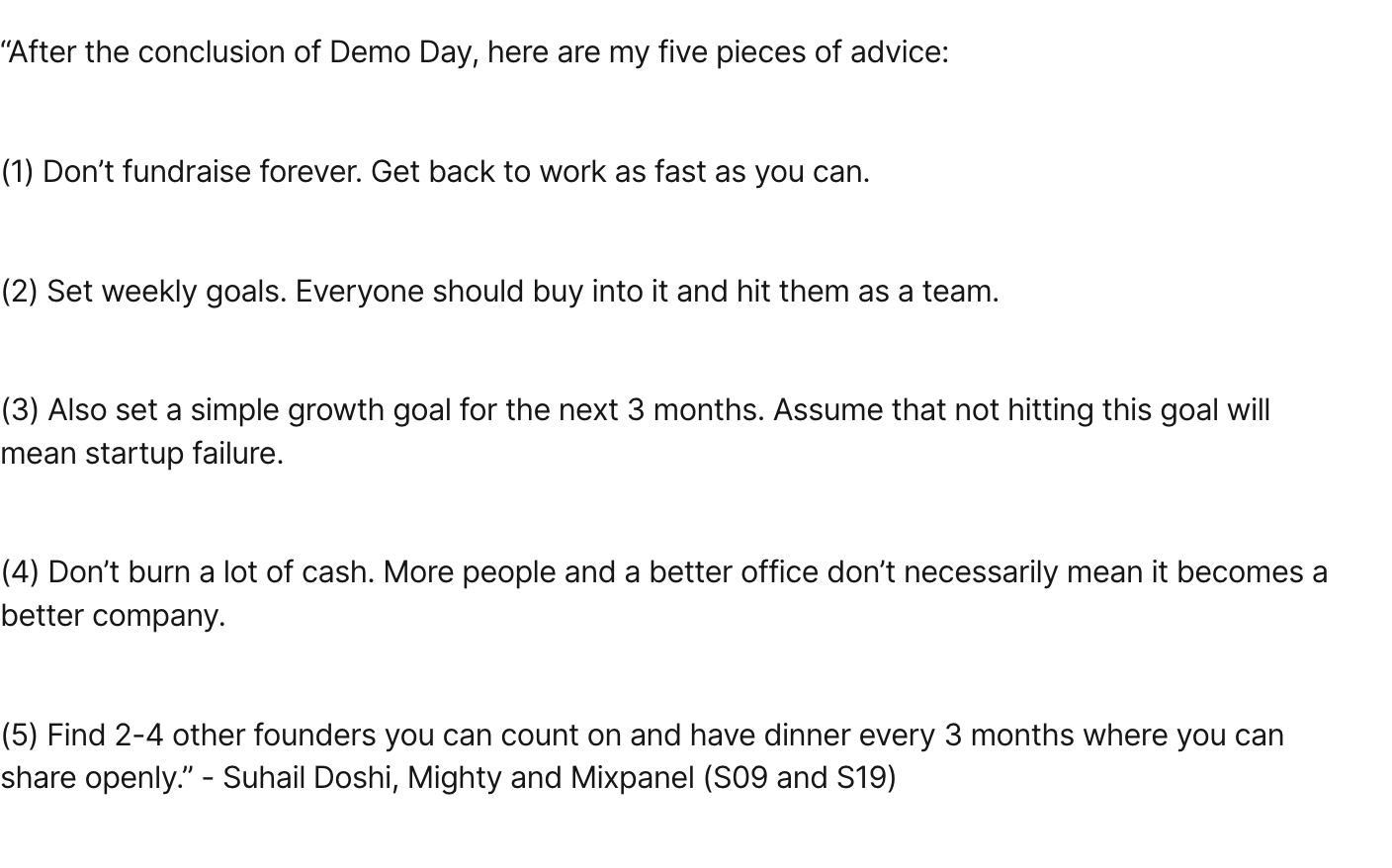⚔️ Slaying Your Startup's Demo Day: An Ultimate Guide for First-Time Founders 🚀

Hey there, brave first-time founder. So, you're about to step into the wild world of startups on your very first Demo Day? Woohoo! 🎉 Buckle up, because it's going to be one heck of a ride. This guide is here to provide you with essential Demo Day preparation tips. If you're not quite ready to hit the accelerator, why not join our startup community to learn the ropes? Join Here 🌐 Let's dive in.
What's the Deal with Demo Day?
Demo Day, the debutante ball for your startup. 💃 It's your chance to woo potential investors, mentors, and press with your amazing idea. If you've got some Demo Day wisdom to share, we'd love to hear from you. Share Your Insights

Creating an impact on Demo Day isn't just about having an innovative startup. It's about preparing a compelling pitch, knowing your audience, and weaving a startup story that makes everyone sit up and say, "Wow! Take my money!" 🤑 Dropbox’s preparation for Demo Day is a great example of this.
If you need a little help preparing, our startup community is always here. Get Support
Demo Day Preparation: Breaking it Down
Here's how to gear up for the big day. And remember, if you're a Demo Day expert, we'd love for you to share your tips and tricks. Share Now
Crafting Your Startup Story 📚
Remember, you're not just selling a product; you're selling a vision. Share why you started this journey. Your passion can be contagious. Like Airbnb? They sold the dream of unique, affordable travel experiences - a compelling startup story that set them apart.
Here's a little framework to help you: "The problem (insert problem here), Our solution (insert solution), and The impact (insert impact)."
Designing an Engaging Pitch 👨🎨
Visuals matter, guys. An engaging pitch isn't just about the words but also about how you present them. Go bold, go colorful, keep it clean and engaging. Dropbox kept it simple with a demo video, and voila. Everyone got the concept in a jiffy.
Tools like Canva or Prezi can help you create stunning visuals. A neat trick is to use less text and more visuals to keep the attention.
Some key things to include in your pitch deck are an overview of your business, information about your target market and competitors, your product or service, how you plan to make money, and a summary of your team.
Remember, investors have limited time, so be sure to prioritize key elements like the problem you're solving, your target market, the competitive landscape, your unique value proposition, and your financial projections.
Pitch-Deck Presentation Slides
- Problem: This slide talks about the issue we're trying to solve.
- Solution: Here, we outline how our product or service solves that issue.
- Product: This slide presents our product or service in detail.
- Market Size: This slide shows how many people have the problem we're solving.
- Business Model: This slide explains how we make money.
- Underlying Magic: This is where we discuss what makes our product or service special.
- Competition: Here, we identify other companies that are also trying to solve this problem.
- Better/Different: This slide explains why our solution is better or different from others.
- Marketing Plan: This slide outlines how we plan to let people know about our product or service.
- Team Slide: This slide introduces the people behind the company.
- Traction/Milestones: This slide showcases our achievements and progress so far.

Presentation Skills are Key 🔑
Remember, as a first-time founder, you are your startup's best spokesperson. So speak up, be confident, and remember - practice makes perfect! Even Elon Musk wasn't born a pro-speaker. If he can do it, so can you.
Resources like Toastmasters or even just practicing in front of a mirror can help. A tip to keep in mind - modulate your voice to avoid monotone delivery.
From YC, the very best demo day presentations have four core qualities:
- Clarity - the presentation is clearly and simply presented.
- Excitement - the opportunity is compelling; it demands listeners pay attention.
- Informative - it teaches listeners something they did not know.
- Memorable - your story stays with the audience; later they can recall who you are and what you do.

Anticipating Investor Questions 🎙️
Investors will have questions, and you should be ready with the answers. Prepare for the most common questions and think about the tricky ones too. Remember how Mark Zuckerberg had his revenue model answers ready to go? That's the spirit.
🌍 Market:
- Why does your company have high growth potential?
- What is the TAM (total addressable market) you plan to achieve?
- Over what time period do you plan to achieve this?
- Why is it the perfect time for your idea right now?
- Who is the customer?
🏆 Competitive Advantage:
- What do you understand that others don’t?
- What’s new about what you make?
- Why isn’t someone already doing this?
- What is your unfair advantage?
- What are the key things about your field that outsiders don’t understand?
- How is your idea different?
👥 Founding Team:
- How well do you know each-other? (if theres more than one founder)
- What expertise do you have in the field you wish to disrupt?
- Are you 100% fully committed to making your idea a success?
- How has your previous experience helped you?
- How do you deal with conflict of interest?
- How do you approach goal setting and KPIs?
- Who does what in the team?
- How have you identified this gap in the market and why are you capable of filling it?
🥊 Competition:
- Who are your competitors? (do not say no one.)
- What will give your company a competitive advantage?
- What advantages does your competition have over you?
- Compared to your competition, how do you compete with respect to price, features, and performance?
🎯 Market Validation:
- What have you done to show there is demand for your product/service?
- How do you know customers need this?
- What part of your project are you going to build first?
💰 Financials:
- What are the 3-year financial projections?
- What are the key assumptions underlying your projections?
- Has the company raised any equity or debt; what is the capitalisation structure?
- What future equity or debt financing will be necessary?
- How much of a stock option pool is being set aside for employees?
- What is the projected burn rate?
- When will you be profitable?
- What are the key metrics that the management team focuses on?
⚖️ Legal:
- Have you incorporated, or formed any legal entity (like an LLC) yet?
- What kind of entity and in what state or country was the entity formed?
- What key intellectual property does the company have (patents, patents pending, copyrights, trade secrets, trademarks, domain names)?
- What comfort do you have that the company’s intellectual property does not violate the rights of a third party?
- How was the company’s intellectual property developed?
- Would any prior employers of a team member have a potential claim to the company’s intellectual property?
See the full list of questions from Concept Ventures here.
A tool you can use is the Q&A feature in Google Slides for practice.

Post-Demo Day: It's a Marathon, Not a Sprint 🏃♂️
Demo Day might feel like the finish line, but it's just the beginning. Once the presentations are over, it's time to follow up with the interested folks and keep the ball rolling. Uber did a stellar job with their follow-up strategies post-Demo Day. Stuck on your follow-up strategy? Our community can help. Get Assistance
Remember to use a CRM tool like HubSpot for managing follow-ups. A tip: personalize your follow-up messages for a greater impact.

Conclusion
Demo Day might seem like a giant mountain to climb, but with this guide in your backpack, you're all set started on your Demo Day journey. Remember, every awesome company started with a simple idea, and many had their first big break at a Demo Day. So go get 'em, tiger! 🐯
Top Tips for First-Time Founders on Demo Day:
- 📖 Craft a compelling startup story, not just a pitch.
- 🎨 Make your presentation visually stunning.
- 💬 Practice your presentation skills until perfect.
- 🧠 Anticipate investor questions and have ready answers.
- 💌 Follow up promptly with interested parties post-Demo Day.
Other Helpful Resources
How to Present to Investors by Paul Graham
Advice on Pitching by Aaron Harris
Top Questions VCs ask Founders by Concept Ventures
30+ Pitch Deck Examples + Templates by Slidebean
A Guide to YC Demo Day Presentations by Geoff Ralston
That's a wrap, folks. We hope this guide empowers you on your exciting Demo Day expedition. Got any queries or want to share your own Demo Day escapade? We'd love to hear. Keep dreaming big, and remember, your startup journey is just taking off. 🚀
If you're still finding your feet, our community is here for you.
With nearly 15,000 members, 3,000 startup ideas and 500 MVPs, Kernal is an expanding community of founders, operators, and investors focused on validating and building pre-seed startup ideas. Post new ideas, browse startups with momentum, and get expert feedback to take the next steps of scaling your startup idea. This exclusive community is the most supportive place to be for builders at this stage in their journey.


